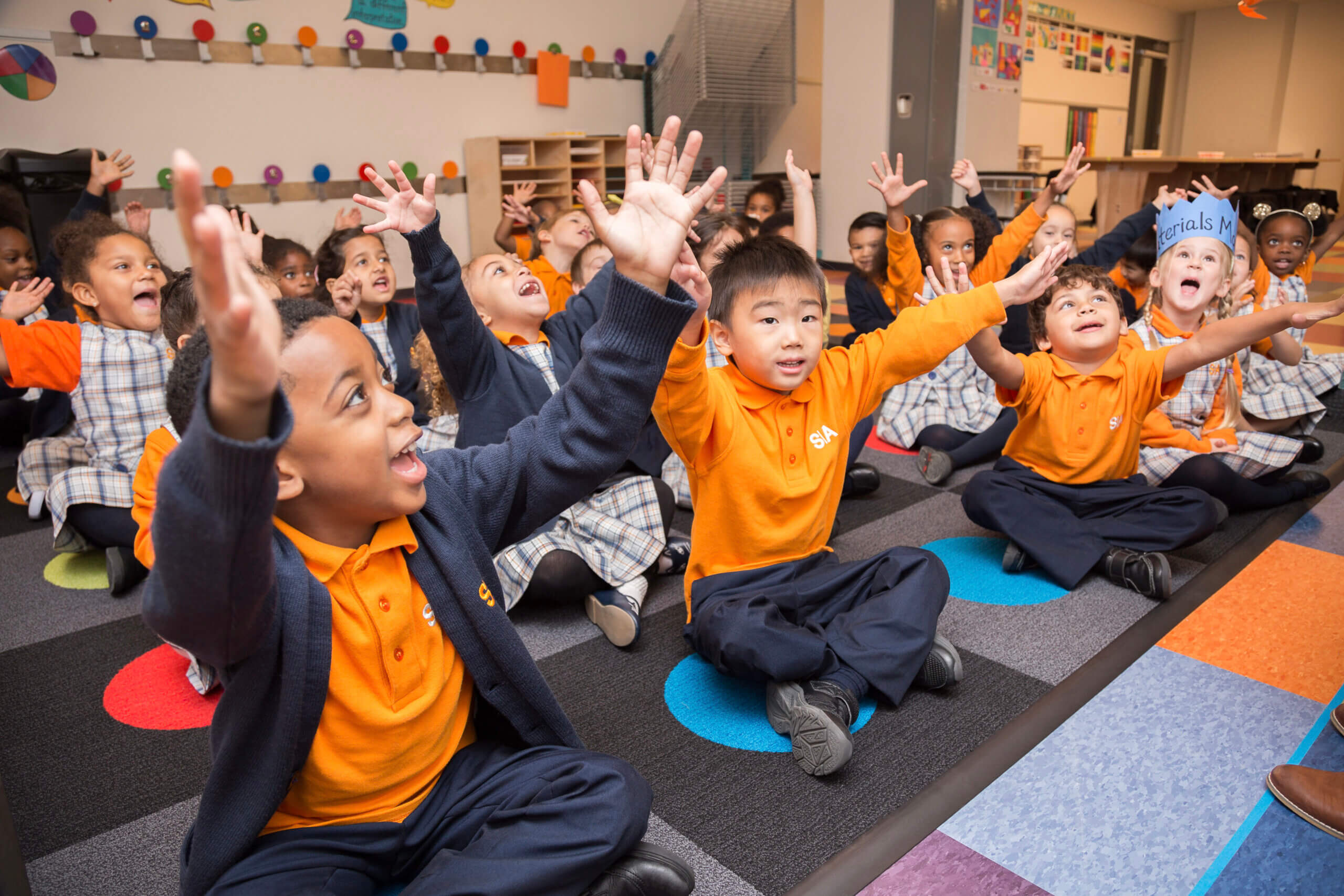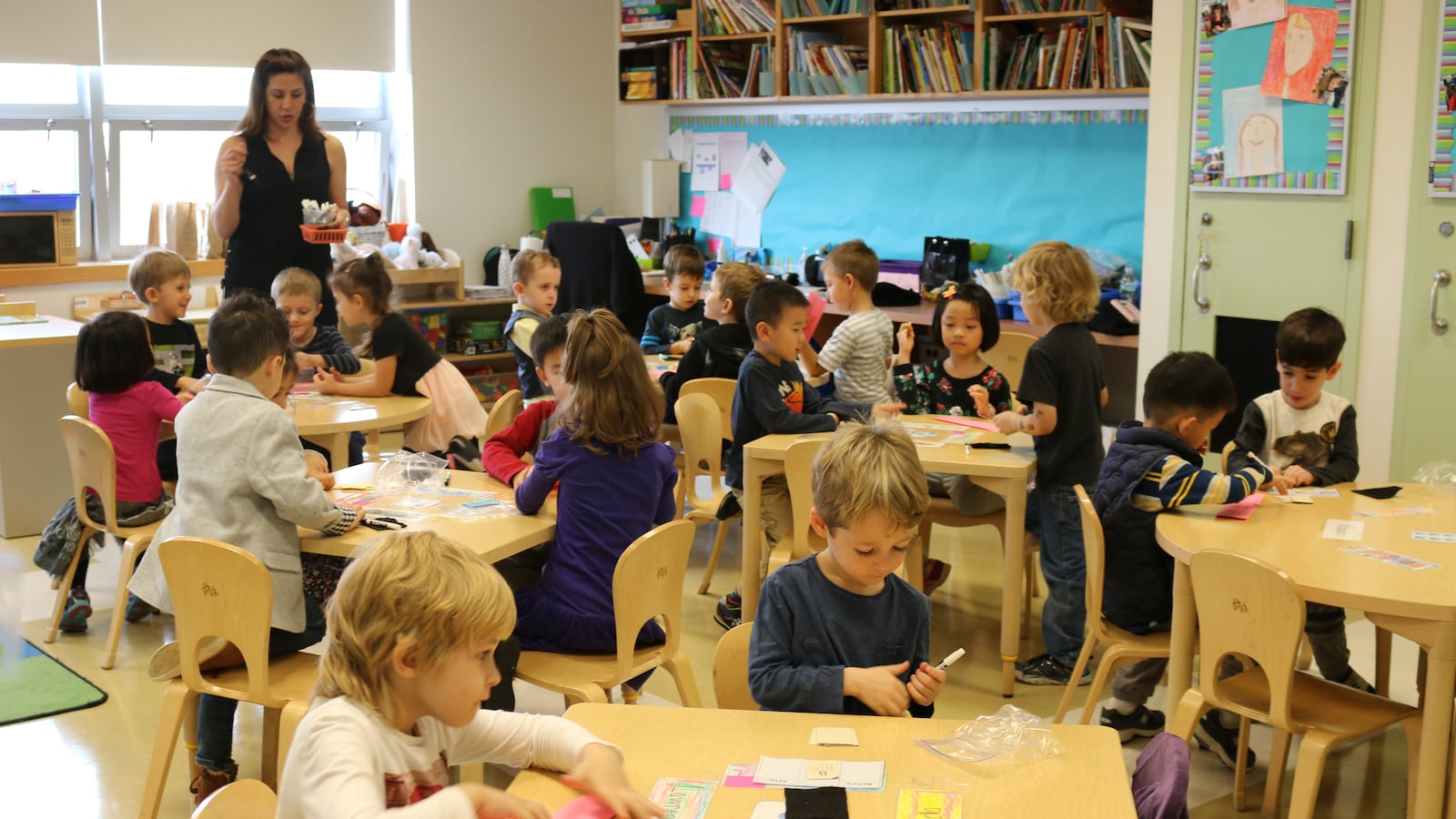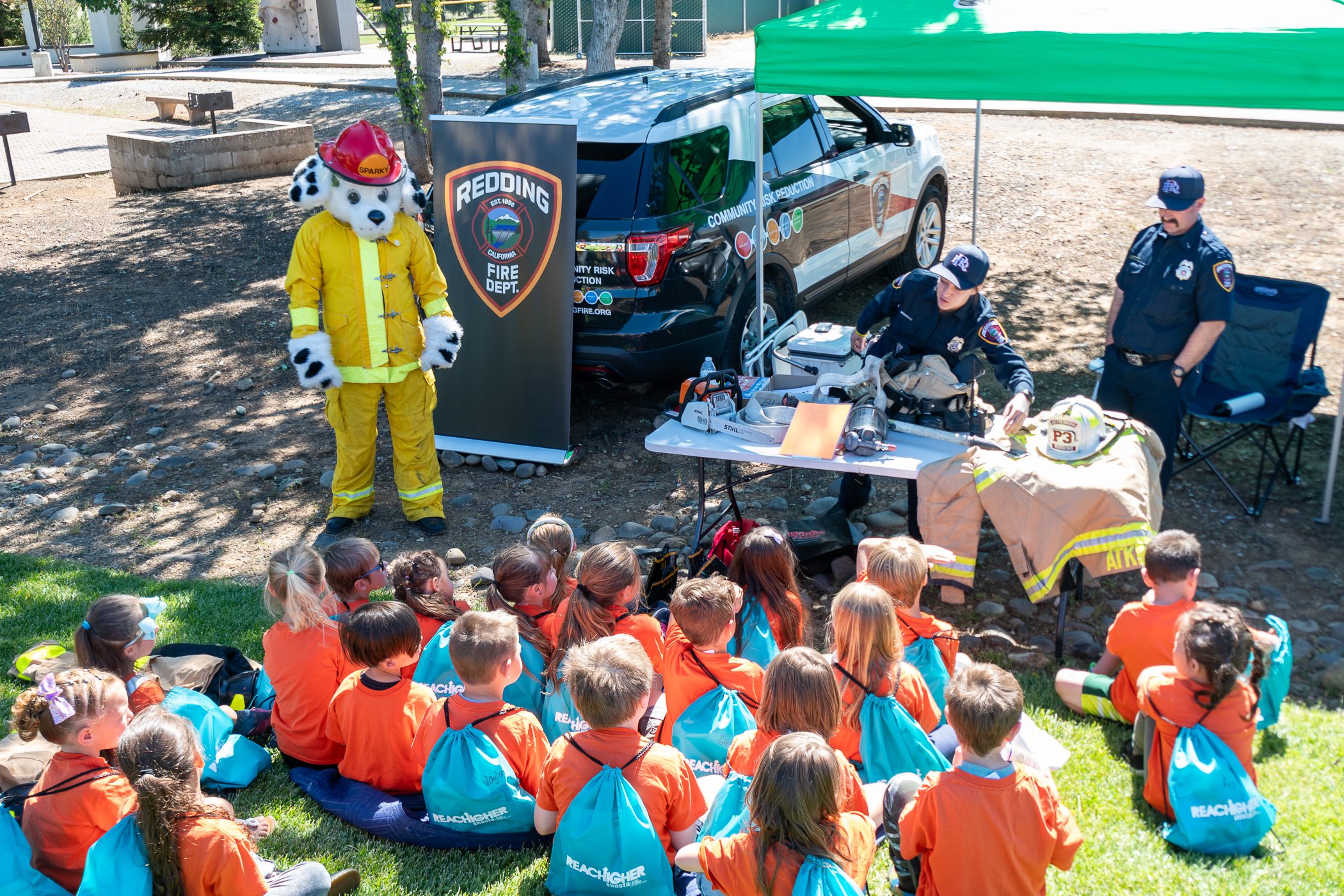Fun outdoor adventures that enrich Kindergarten learning
Wiki Article
The Relevance of Interactive Activities in Elementary School Education And Learning
Interactive tasks play an important duty in elementary school education. They involve students and boost finding out results. With team jobs and hands-on experiments, students experience the material in a functional means. This approach caters to varied discovering styles and promotes essential skills. Nonetheless, the benefits prolong beyond academics. Discovering the deeper impact of these activities discloses their significance fit young students' futures. What transformations take place when trainees proactively participate?Enhancing Engagement With Interactive Discovering
Although standard teaching approaches have their values, interactive understanding considerably enhances pupil involvement in quality college education. This approach urges active involvement, permitting pupils to submerse themselves in the discovering process. By making use of team tasks, hands-on experiments, and technology-driven resources, instructors produce a setting where students feel extra connected to the material.Interactive learning promotes partnership amongst peers, fostering interaction skills and team effort. It likewise deals with diverse understanding designs, making sure that visual, acoustic, and kinesthetic students can all thrive. Trainees are extra most likely to retain information when they actively participate, as opposed to passively receiving understanding.
This vibrant approach not just makes finding out delightful however likewise instills a sense of possession in trainees concerning their instructional trip. As they engage with the content, their inquisitiveness and inspiration to discover boost, laying a solid foundation for future scholastic success.
Creating Essential Assuming Abilities
Interactive discovering not just enhances interaction however likewise serves as a stimulant for creating vital thinking abilities in quality institution students. Through tasks such as problem-based discovering, arguments, and hands-on experiments, students are motivated to analyze details, examine various viewpoints, and create reasoned final thoughts. These interactive experiences need trainees to question presumptions, leading them to believe even more deeply regarding various topics.
In addition, interactive tasks often present real-world circumstances that challenge students to apply their understanding creatively. By navigating through these difficulties, they discover to determine appropriate details and make notified decisions. This procedure cultivates not just private vital thinking yet also urges trainees to verbalize their believed procedures, improving their capacity to interact efficiently. Consequently, interactive knowing atmospheres cultivate a generation of important thinkers that are much better prepared to deal with complicated issues in their future academic and specialist ventures.
Promoting Cooperation Amongst Peers
Cultivating cooperation among peers is necessary in quality institution education and learning, as it enhances synergy and interaction skills. Involving in team tasks aids students construct depend on and regard for one another, laying the foundation for reliable cooperation. Additionally, analytic together allows students to gain from each various other and create a collective technique to obstacles.Teamwork and Communication Skills
Reliable teamwork and communication skills are vital components of a successful elementary school education. Participating in interactive activities urges students to collaborate, share concepts, and resolve issues together. Such experiences advertise the advancement of essential communication capacities, allowing kids to reveal their thoughts clearly and pay attention proactively to others. With teamwork, students learn to value varied point of views, cultivating a sense of neighborhood and shared duty. Structured group tasks, whether in academics or innovative jobs, boost peer communications, showing children how to work out roles and settle conflicts. These abilities not just contribute to a favorable classroom setting yet additionally prepare trainees for future collective endeavors in greater education and learning and the workplace. Generally, synergy and communication are foundational to alternative development in elementary school.Building Trust Fund and Regard
Building count on and respect amongst peers works as a keystone for effective partnership in quality institution settings. When students really feel valued and valued by their classmates, they are more probable to engage actively in group tasks. Interactive tasks, such as team tasks and participating games, provide possibilities for pupils to pick up from each other, cultivating a sense of area. This setting urges open communication, allowing students to reveal their ideas and viewpoints without worry of judgment. As trust builds, trainees become more willing to share responsibilities and support each other's learning. Inevitably, cultivating an atmosphere of depend on and respect improves not just scholastic end results however additionally social growth, gearing up trainees with important interpersonal abilities for their future ventures.Problem-Solving With each other
Collective problem-solving engages trainees in crucial thinking and teamwork, important abilities for their academic and personal development. When trainees collaborate to take on obstacles, they find out to communicate successfully, respect varied perspectives, and take advantage of each other's staminas. This process improves their capacity to analyze troubles from different angles and create creative services. Group tasks, such as science experiments or math difficulties, advertise energetic participation and cultivate a feeling of community. As students collaborate, they likewise build social skills, finding out to discuss and endanger, which are crucial for future interactions. Inevitably, problem-solving with each other cultivates a helpful understanding atmosphere, equipping students to take ownership of their education and learning while preparing them for joint endeavors beyond the class.Urging Creative Thinking and Development
Urging creativity and development in elementary school education can be greatly improved with hands-on discovering experiences. These activities permit students to engage straight with materials and concepts, cultivating creative reasoning. In addition, joint team article source projects can promote diverse ideas and remedies, better supporting a creative environment.Hands-On Understanding Experiences
A plethora of hands-on discovering experiences greatly improves imagination and development in elementary school education and learning. Involving students in sensible activities enables them to apply theoretical understanding in real-world contexts, fostering deeper understanding. By adjusting products and devices, children establish crucial analytic skills and discover to believe outside the box. These experiences inspire inquisitiveness and motivate trainees to explore their interests even more. Additionally, hands-on tasks can bridge numerous topics, connecting scientific research, art, and math in significant means. This interdisciplinary technique urges trainees to see links and believe artistically. Ultimately, hands-on learning experiences nurture a generation of pioneers, outfitting them with the skills and self-confidence required to tackle future challenges and add to culture in special ways.Collaborative Team Projects
Hands-on knowing experiences normally lead to the incorporation of collective team projects, which play a vital role in fostering imagination and innovation in elementary school education and learning. These projects encourage pupils to work together, sharing viewpoints and concepts, which improves problem-solving abilities and essential reasoning. Through collaboration, students learn to connect efficiently and regard diverse viewpoints, essential skills for their future. In addition, team jobs provide opportunities for students to explore different functions, boosting their adaptability and self-confidence. Taking part in this cooperative environment permits them to explore their creativity, pressing the boundaries of traditional understanding. Inevitably, joint group jobs not only enhance the academic experience but also prepare pupils for real-world challenges that call for teamwork and innovative thinking.Building Confidence and Self-reliance
As pupils participate in interactive activities, they often discover possibilities to construct confidence and independence. These tasks, whether they include hands-on projects, role-playing, or analytical jobs, motivate students to take effort and share their ideas openly. By taking part in such experiences, trainees learn to trust their capacities and choose without counting exclusively on advice from peers or teachers.Interactive activities promote a feeling of ownership over knowing. They establish critical believing skills and durability when trainees deal with obstacles collaboratively or independently. This process not only enhances their understanding of the subject however likewise equips them to take threats in their discovering trip.
As they browse various interactive scenarios, Click Here trainees progressively lost their self-doubt, leading the way for raised self-confidence - Private Grade School Peoria. Eventually, these tasks play a necessary function in supporting confident and independent students, outfitted to encounter future academic and individual challenges
Creating a Positive Classroom Setting
While fostering a favorable classroom setting is crucial for reliable knowing, it needs intentional initiative from teachers to produce a space where pupils feel secure, revered, and engaged. A favorable ambience urges partnership, allowing pupils to express themselves without concern of judgment.Educators can accomplish this by establishing clear expectations, promoting mutual respect, and identifying individual payments. Including interactive activities better improves involvement, making discovering more vibrant and satisfying.
Furthermore, a nurturing environment supports social-emotional development, as trainees learn to browse partnerships and solve disputes. Educators play an essential role in modeling positive habits and reinforcing a culture of kindness and inclusivity.
Often Asked Questions

Just How Can Parents Support Interactive Understanding in the house?
Parents can support interactive discovering at home by giving engaging materials, urging hands-on jobs, incorporating instructional games, fostering discussions, and creating a nurturing atmosphere that advertises curiosity and expedition in their kids's learning experiences. (Kindergarten)What Sorts Of Interactive Tasks Are Many Efficient?
Hands-on jobs, collective games, role-playing circumstances, and instructional modern technology applications are amongst the most effective interactive activities. These engage trainees, improve important assuming skills, and advertise teamwork, eventually cultivating a deeper understanding of numerous topics.Just How Do Interactive Activities Cater to Different Knowing Styles?
Interactive activities engage aesthetic, auditory, and kinesthetic learners by integrating varied approaches. These tasks assist in recognizing with hands-on experiences, collaborative conversations, and aesthetic aids, allowing pupils to take in info according to their recommended learning design.What Are the Prices Connected With Executing Interactive Tasks?

Applying interactive tasks sustains prices such as products, training for teachers, innovation upgrades, and potential center modifications. Spending plan constraints can likewise influence the regularity and selection of tasks offered to trainees in academic setups.
Just How Can Teachers Evaluate the Effect of Interactive Knowing?
Teachers can analyze the effect visite site of interactive discovering via observations, trainee responses, efficiency metrics, and comparative evaluation of test scores prior to and after application, ensuring a thorough understanding of engagement and expertise retention renovations.Via tasks such as problem-based discovering, disputes, and hands-on experiments, pupils are motivated to assess details, review different viewpoints, and create reasoned verdicts. Interactive tasks often present real-world circumstances that test students to apply their understanding creatively. Engaging in interactive activities urges pupils to collaborate, share ideas, and address problems together. Interactive tasks, such as team jobs and participating games, supply opportunities for students to find out from one an additional, fostering a feeling of neighborhood. As pupils engage in interactive tasks, they often find chances to build self-confidence and independence.
Report this wiki page